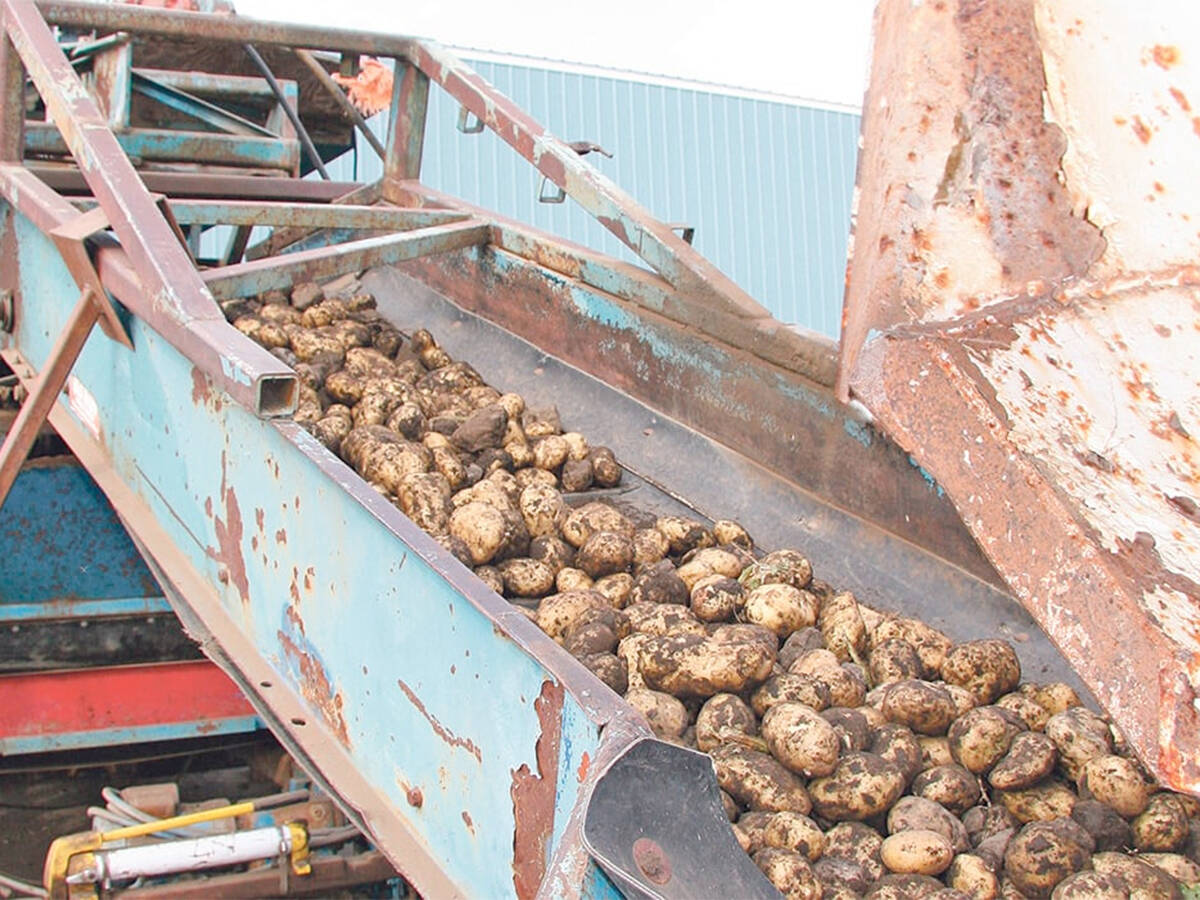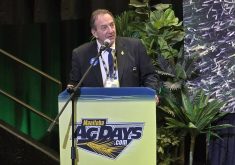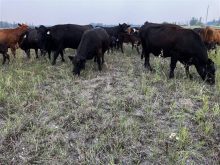Frieda Krpan was puzzled when the Manitoba government announced it transferred the crop insurance and crop hail insurance reserve funds totalling $265 million to two trust accounts to ensure the money couldn’t be used for anything other than crop insurance.
“What brought this on? In all the years that I was there, there has never been a suggestion to dip into that money (by government) — ever,” the former chair of the Manitoba Agricultural Services Corporation (MASC), which oversees crop insurance and reports to the minister of agriculture, said in an interview.
Read Also

Potato growers beware new PVY strains
Newer strains of potato virus Y (PVY) are creating headaches for potato farms in Eastern Canada, and Manitoba farmers should pay attention
Provincial legislation and a federal-provincial agreement prevents the Manitoba government from using crop insurance reserves for anything but crop insurance, said Krpan who was appointed to MASC’s board by the previous NDP government.
The federal and provincial governments and farmers contribute to the crop insurance program. Surpluses go into a reserve, which can fluctuate and even go into deficit, but is intended to be actuarially sound.
When the reserve gets too high crop insurance premiums are reduced and when it declines, premiums are increased.
The hail reserve consists of only farmers’ money paid through insurance premiums.
“There’s no need for it (trusts) because there are safeguards in place and it can’t really happen (using the money for other purposes) so there’s something else going on,” Krpan said.
The MASC Act does protect the reserve, Agriculture Minister Ralph Eichler said in an interview.
“However, in the event that the program is discontinued in the future, or in the case that a future government amends the act, the disposition of any surplus in the reserve would certainly be at the discretion of government and could be used for non-agricultural purposes,” he said. “The establishment of irrevocable trust ensures that these funds are protected forever and can only be used in support of the agricultural industry and not to fix government’s books. It just clarifies and quantifies what we are trying to do.”
Eichler also agreed the trusts were set up to remove the reserve money from the Manitoba government’s books resulting in a clearer picture of the government finances.
That same point was made by the government in Auditor General Norm Ricard’s report on the government’s 2017-18 financial statements released Sept. 28.
The government response to the auditor general’s criticisms about the timing of the trusts and the government’s decision not to include the Workers’ Compensation Board’s finances on its books didn’t mention protecting MASC funds from future governments. It focused on bookkeeping.
“For MASC, the past practices of growing or draining an insurance fund and then reporting the associated income or losses as part of the government’s finances could materially misrepresent the overall financial position of the province,” the government response said in part.
Ricard expressed concerns about how the Manitoba government reported its March 31, 2018 Summary Financial Statements.
In the case of the MASC, Ricard said the transfer of $265 million in MASC reserves was recognized as an expense in the 2017-18 fiscal year, but wasn’t authorized until after the fiscal year ended.
“It was all about the timing issue,” Eichler said. “But as far as models we feel very strong this is the right time to bring it in.
“It has worked out well.”
Ricard said he is continuing to investigate the MASC trusts and whether they “should be accounted for outside the government reporting entity.”
Ricard said finances of entities controlled by the government should be accounted for in the government’s books.
“A government cannot add or delete entities or programs from its summary reporting unless changes are made in its relationship with those entities — to either give up or gain control of the entity,” the auditor general’s report says. “Changes to the legal form of a relationship do not necessarily change the substance of the relationship. The exclusion of entities from the government reporting entity that are still controlled by the government does not provide a complete picture of the financial position and results of the government.”
The government disagrees.
“Improperly claiming the money of the Workers’ Compensation Board as a government asset, and showing the fluctuations in the stability and insurance funds in the Manitoba Agricultural Services Corporation painted a misleading picture of the structure of Manitoba’s finances,” the government says within the auditor general’s report.
“These decisions were not motivated by self-interest. In fact, the necessary adjustments we have made are adverse to our own financial results.”
Indeed, Ricard said the Manitoba government’s deficit is overstated by $347 million because of how it handled WCB and MASC in its books.
“That is half the reported deficit,” Ricard said in a news release.
Ricard, provided a “qualified opinion” of the government’s books.
“Qualified opinions should be a rare occurrence and should be taken seriously,” Ricard said.
















